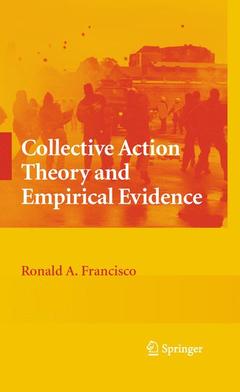shift and dramatic improvementfrom the yearly data of the 1970s. For several years now, disaggregated methods (i. e. , single-case comparisons) have been used to test theories (Davenport and Eads 2001; Rasler 1996; Francisco 1993, 1995, 1996). The single area of Snyder’s(Snyder 1978)demandsthat has faltered is in linking levels of analysis in the eld of protest and repression. James DeNardo’s (DeNardo 1985) and Lichbach’s (Lichbach 1996) formal models have for the most part not beentestedempirically,norhaveRonaldWintrobe’s(Wintrobe1998)modelsofd- tators’ strategic behavior. The dif culty stems from the disjuncture between game theory or micro models and macro, aggregate data. Green and Shapiro (Green and Shapiro 1994) took an extreme position on this problem: little empirical evidence from rational choice and game theory exists. To the extent that empirical evidence comprises our understanding of politics, rational choice and game theory have - guably contributed as much or more than any other approach. Think of interest group theory before Olson’s The Logic of Collective Action, of electoral theory before Cox’s (Cox 1997) Making Votes Count, or of coalition theory before Riker’s (Riker 1963) The Theory of Political Coalitions. There are few social scientists who would not judge these books as great for economics and political science. Cox’s book alone has won every major book prize appropriate in political science. On the normative side, too few political scientists researching democratization are aware of the theory of social choice. Its ndings challenge the foundations of democratic theory (Riker 1982).




